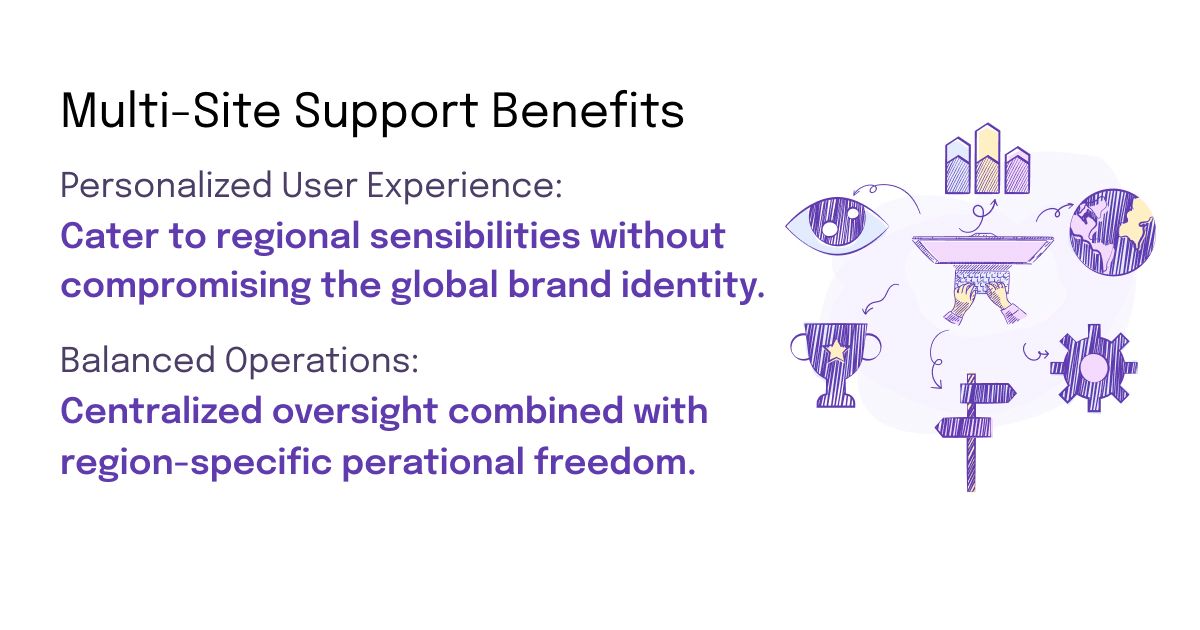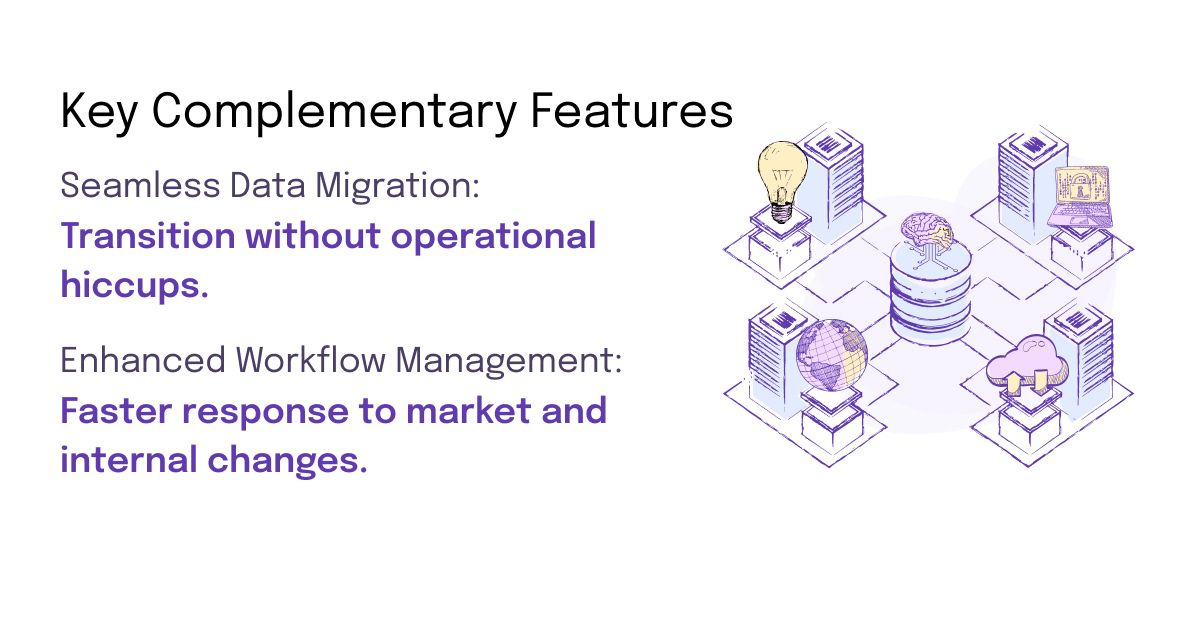In today's intricate business world, an enterprise's agility and adaptability are paramount. As B2B businesses mushroom across the globe, they encounter a pivotal challenge: seamlessly providing targeted services across various markets while sustaining a uniform brand ethos. Central to this solution is multi-site support. This feature, coupled with myriad cutting-edge solutions, is progressively emerging as an instrumental tool for companies eager to conquer international terrains.

Multi-Site: Beyond Mere Adaptability
- Personalized User Experience:
Today's consumer values personalization. In the B2B world, it's no different. Companies operate across diverse regions, each with its unique cultural nuances, legal frameworks, and consumer behaviors. Catering to the specific needs and preferences of different audiences is paramount. A platform that embraces multiple sites ensures your brand resonates with local sensibilities, all while upholding its global identity.
- Operational Efficiency:
Simplification is the name of the game. By overseeing multiple regional operations from one centralized platform, companies can significantly reduce redundancies. Imagine the ease of managing product variations, regional-specific promotions, and price points, all from one digital dashboard.
- Streamlined Branding:
While content might need localization, a brand's core message and values should remain consistent. Multi-site support ensures you can tweak your offerings for different regions without diluting the brand's essence.
- Centralized Control with Decentralized Operations:
Businesses can maintain a central oversight on all operations while allowing individual sites to operate in tune with their local market. This balance between macro-management and micro-operational freedom is crucial for brands aspiring for global footprints.

Features that Complement Multi-Site Functionality
High Customizability:
The power to personalize as per regional demands ensures every site is an authentic representation of the brand, tailored to its audience.
Seamless Data Migration:
Transitioning from a legacy system? Smooth data migration is essential to ensure business continuity and data integrity.

Mobile Responsiveness:
Today's businesses need to be accessible on the go. A platform that’s mobile-responsive ensures you're always connected, always in control.
Enhanced Workflow Management:
Streamlining processes to make them leaner can greatly improve efficiency. With optimized workflows, businesses can react faster to market changes and internal demands.
Integrative Capabilities:
A business tool's real strength often lies in its ability to integrate with other systems, be it payment gateways, CRM systems, or inventory management tools.
Optimal Pricing Mechanisms:
Dynamic and region-specific pricing strategies ensure competitiveness in diverse markets. It's not just about having the right price, but the right price for the right audience.
Performance Enhancements:
User experience is paramount. Advanced caching mechanisms ensure operations are swift, making sure clients have a seamless experience.
The Broader Perspective
B2B businesses today, more than ever, require tools that are as expansive as their vision. Features like Digital Assets Management, Efficient Order Management, and CRM systems underscore a holistic approach to B2B commerce, ensuring that operations are comprehensive and client relationships are nurtured.
In Conclusion
As B2B entities stand on the precipice of global expansions, the tools they employ will significantly dictate their success trajectory. Multi-site support, bolstered by other advanced features, is not just a desirable addition but an essential one. As you strategize for the future, contemplate on platforms that don’t just meet current needs but are geared for future challenges. The era of global business is here, and the key to conquering it might well lie in embracing multi-site capabilities.